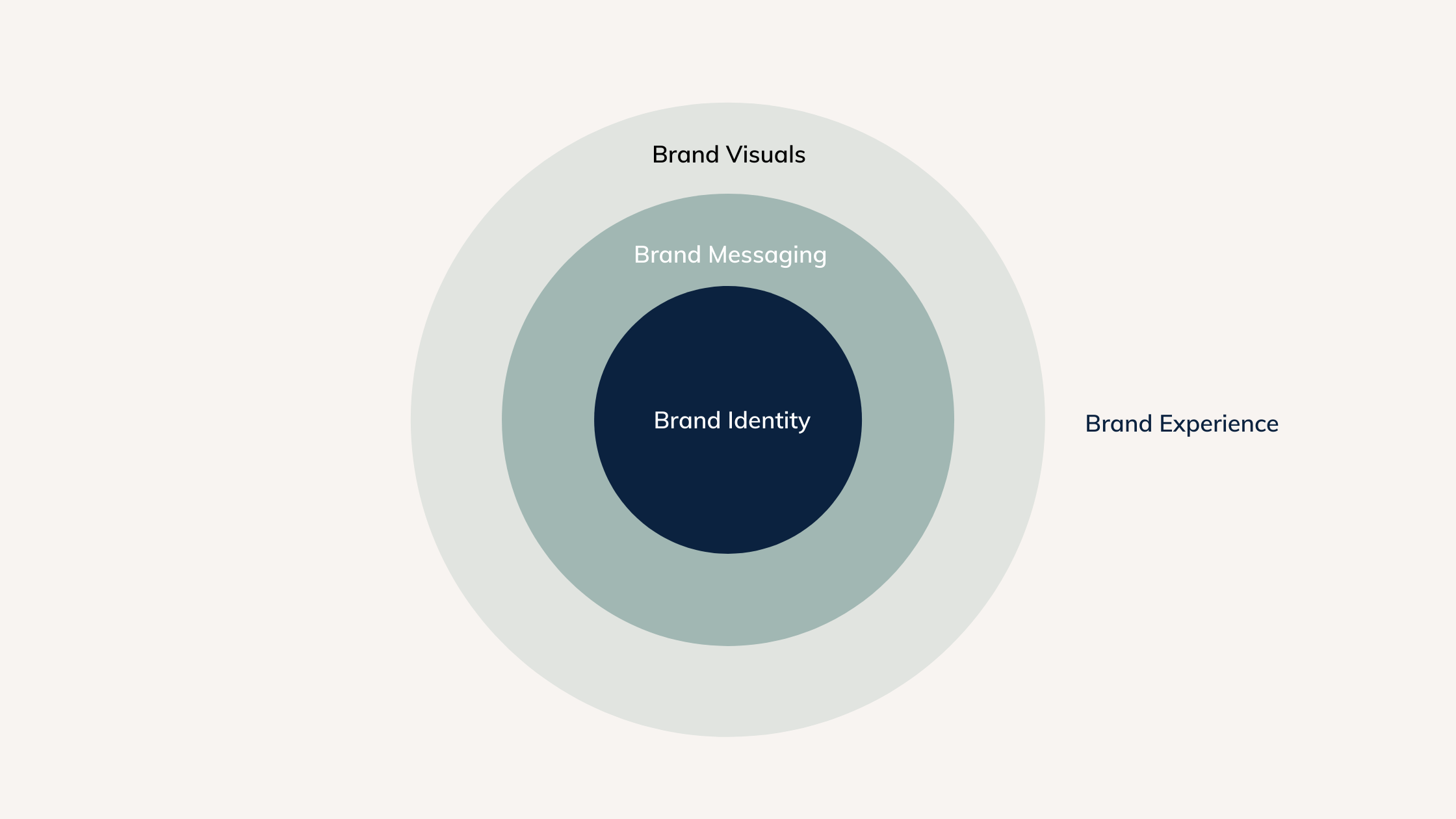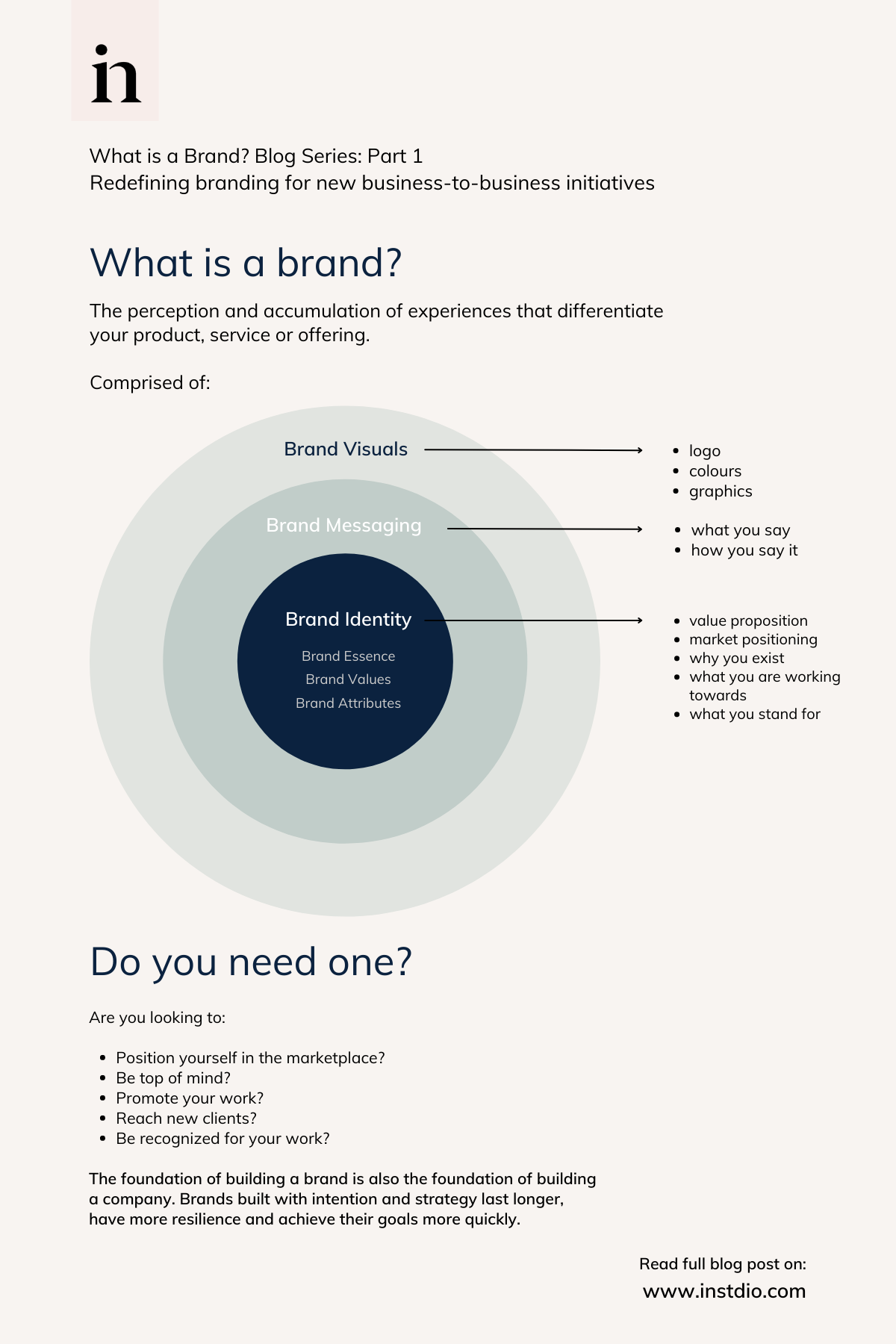What is a Brand: Do you need one?
Author: Natalie Pastuszak
Date: February 28, 2022
Redefining branding for new business-to-business initiatives
I once used the word “brand” in a meeting with communications professionals discussing the public awareness of an upcoming mixed-use development project.
My colleagues were of the opinion that it was too early to discuss a visual identity while the project was still going through its municipal approvals process.
They were right.
However, I had used the term “brand” to describe the articulation of the developer’s purpose, mission and vision for the project – components of a “brand essence,” usually developed at inception. I too was right.
It quickly dawned on me that we communications professionals don’t have a consensus on the definition of “branding.” So how can we expect our clients and partners to have a clear understanding of its importance in our collective work?
What is a brand?
We define it as the perception and accumulation of experiences that differentiate your product, service or offering.
A brand can be developed for any entity with a unique offering, such as a personal brand, a place brand or a company brand. Ultimately, a brand supports how you are positioned in the marketplace, what you are known for and how you present yourself.
Branding is what speaks for you before you get a chance to.
If you Google “branding,” you will come across a myriad of definitions. That is because branding can be quite subjective. It is also created through an accumulation of experiences, which means it’s ever-changing.
Ultimately, your brand is shaped by the culmination of your
visual elements, such as your logo, colours and graphics
messaging, meaning what you say, how you say it and what you stand for
experiences and reputation, such as direct experiences with clients, what others read and hear about you and how you engage with those you work with
These often come together through the development of websites, public relations campaigns, written internal and external reports, presentations, blog posts, etc. If done well, these elements should help build your brand, and then continually reinforce it.
Think about a professional services consultant you recently hired.
What was your perception based on navigating their website?
What are they known for? Why did you hire them?
What were your expectations on how they deliver?
Answers to these questions are part of this consultant’s brand. If the answers are not clear, it may mean they don’t have a strong brand working for them.
A brand can be built with or without intention.
So, do you need a brand?
People will speak about you with or without your help. So you might as well assist.
To get clear, you can start by asking yourself whether you are looking to
Position yourself in the marketplace?
Be top of mind?
Promote your work?
Reach new clients?
Be recognized for your work?
If you’ve answered yes to any of these questions, you should consider developing a brand.
What is often misunderstood is that the foundation of building a brand is also the foundation of building a company.
Developing a brand involves articulating your value proposition, how you fill a gap in the marketplace and how you differentiate yourself from your competitors. The process also helps to define your outcome and expectations.
It takes time to build a brand that accurately supports your desired perception. It also takes strategy, resources and professional expertise.
Here are the brand elements we work through with clients:
brand identity
brand essence – why you exist, what you are working towards and how you achieve it
brand values – what you stand for
brand attributes – your personality, how you operate, how you speak, etc.
brand messaging
key messages, website copy, etc.
visual brand
logo, colours, graphics, etc.
Once your brand identity is articulated, visual elements and messaging are developed to communicate who you are and how you’re choosing to stand out. Think of these as tentacles of your brand, extending beyond your reach, speaking on your behalf. If your brand is an extension of you, speaking in support of you, you have just created a multiplier effect to get your message out further and faster.
As communicators, we have developed a brand process that is rooted in intention and market positioning and is tailored to connect with your target audience.
We deeply understand the craft of ongoing communications work in support of your business, so we ensure a strong brand process from the onset.
Branding and reputation are one of the most valuable assets a company has. It is difficult to build and easy to break.
Today, a brand is synonymous with its company. Brands built with intention and strategy last longer, have more resilience and achieve their goals more quickly. Yes, a brand can be developed without intention, but why would you want to?


